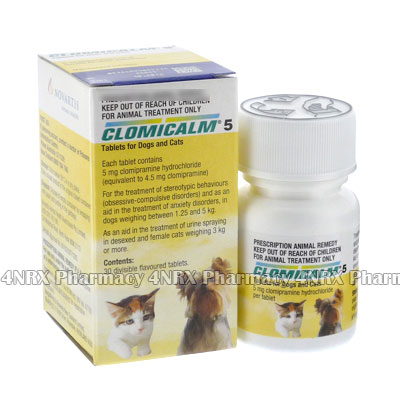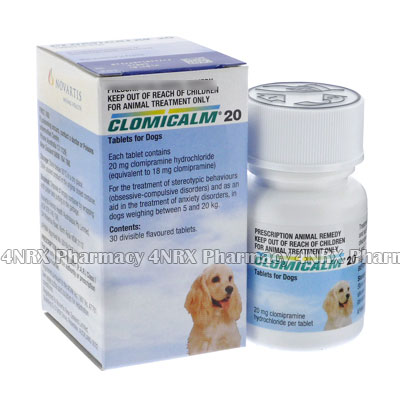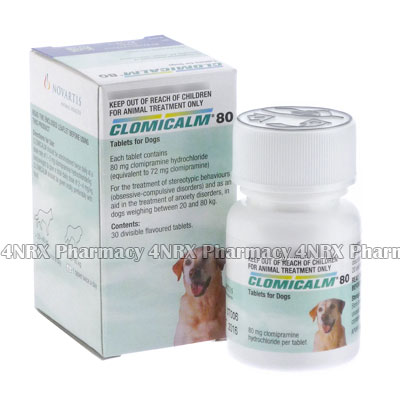 |
Home  4NRX Pet Pharmacy 4NRX Pet Pharmacy  Clomicalm (Clomipramine Hydrochloride) Clomicalm (Clomipramine Hydrochloride) |
|
|||||||||
|
|
Clomicalm (Clomipramine Hydrochloride)
What is Clomicalm (Clomipramine Hydrochloride) used for? Clomicalm (Clomipramine Hydrochloride) is an oral medication prescribed to calm dogs or cats making it easier to learn new and positive behaviors. It operates similar to antidepressants by balancing levels of neurotransmitters in your pet to reduce anxiety and unusual behavior. This action also makes it useful for helping dogs with separation anxiety return to normal behaviors. Your veterinarian may prescribe it for other unlisted conditions, as well. How should I use Clomicalm (Clomipramine Hydrochloride)? Clomicalm (Clomipramine Hydrochloride) is typically administered once or twice each day at a dosage of one tablet, but the best regimen for your pet will be determined by your veterinarian after observing its symptoms and health condition. The tablets should be administered orally. If you have trouble feeding the medication to your pet it may be helpful to hide it in food or a snack. Never change the form of the medication by splitting, chewing, or crushing as this may destroy or alter the form of its contents. If you have any questions about the medication, be sure to ask the veterinarian to ensure the correct application. What are the side effects of Clomicalm (Clomipramine Hydrochloride)? Some animals using Clomicalm (Clomipramine Hydrochloride) may experience side effects such as:
Immediately inform your veterinarian if you witness any unusual symptoms affecting your dog, no matter how intense they are. It may be necessary to adjust your dosage or application frequency to prevent further problems from occurring. Please Note Strictly follow all instructions provided to you by your veterinarian while using Clomicalm (Clomipramine Hydrochloride). Optimum and safe dosage can differ based on the animal and the condition being treated. As this medication may be unsafe for certain animals, it is essential you always inform your veterinarian if your pet is pregnant, as well as if it has any allergies, other illnesses, or ongoing health conditions, and if it is taking any other form of medication, supplements, or herbal products. Immediately seek emergency medical care if your pet has an allergic or hypersensitive reaction. Common signs of a reaction include hives, swelling, skin rashes, chest pains, as well as trouble breathing or swallowing. 


|
||||||||||||||||||||||